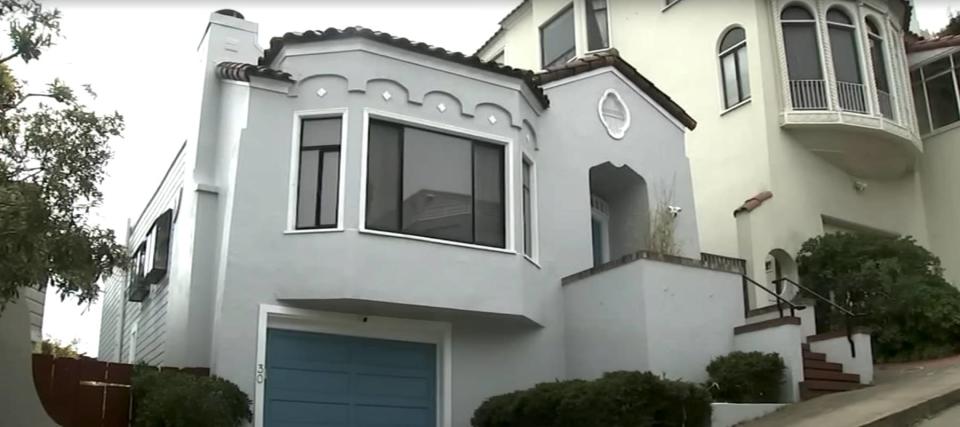San Francisco Home Worth $1.8 Million Sold for $488,000 — Thanks to a Healthy Dose of Family Drama
In an unlikely turn of events that has captivated the attention of both real estate enthusiasts and casual observers alike, a San Francisco home, originally valued at an eye-popping $1.8 million, has been sold for the astonishingly low price of $488,000. The reasons behind this perplexing disparity in valuation are tangled in a web of familial discord, complicated legalities, and deep-seated emotional turmoil. The drama surrounding the property not only affects the immediate family involved but also raises broader questions about the intersections of real estate valuation and family dynamics.
The Sale That Shook the Market
The property that has sparked such intrigue hit the market in June, catching the eyes of prospective buyers with its shockingly low asking price. However, the sale, which occurred on July 16, brought to light a multitude of underlying issues stemming from a complex family situation. Todd Lee, the seller of the home, spoke candidly about the chaos that unfolded in the background. “This thing is a family mess,” he remarked during an interview with the San Francisco Chronicle, a sentiment that encapsulates the convoluted narrative surrounding the sale.
At the center of the turmoil is Todd’s sister, Cheryl Lee, who, at 66 years of age, was not only a tenant of the home but also a significant player in the unfolding family drama. Cheryl had initially been renting the property alongside their elderly mother, Sandra Lee, who is 83 years old. The family’s turbulent history is further exacerbated by the fact that the property has been occupied for nearly three decades, a situation that introduces complications related to tenancy rights and property value.
The Property’s Impressive Backstory
The house itself has a storied past, having been purchased by Sandra’s parents back in the 1970s for a mere $52,000. Throughout the years, it has become a family heirloom as much as it is a real estate asset, adding an emotional layer to the financial transaction at hand. Sandra, reflecting on the situation, has voiced her concerns of perceived betrayals and deceptions, claiming that decisions regarding the sale of the home were pursued without her knowledge or approval. This claim has amplified feelings of betrayal, particularly regarding her son Todd and her brother Cedric Goo, who she accuses of manipulating circumstances against her wishes.
Leases, Occupancy Rights, and Allegations
One pivotal aspect of the property’s value and sale comes down to the substantial rights held by its current tenants—namely, Sandra and Cheryl. An unusual clause in Sandra’s lease, allegedly written in secret by her stepfather, Kenneth Goo, grants her occupancy rights that extend into 2053. The home was sold with a significant stipulation: it currently houses tenants paying a mere $416.67 a month in rent—an amount that seems almost laughable when weighed against the property’s estimated value of $1.8 million. A sale under such conditions provokes questions about the real worth of a property when long-term tenants limit its market potential.
The Legal Controversy
Legal wrangling is rife, as Todd has denied his mother’s allegations, suggesting that he looked to sell the house in an attempt to avoid further legal disputes and litigation. He reportedly received higher offers for the property but chose to proceed with the sale to Cheryl to mitigate escalating tensions and hostilities. "I wanted to keep it private," Todd stated, indicating that the family’s public drama exceeded what he had ever anticipated.
The legal and financial implications of this sale are significant. The family trusts established by Kenneth Goo, who passed away in 2022, name Todd as a trustee with his siblings, Sandra and Cedric, as beneficiaries. This has generated additional tension, particularly as the property’s reassessment after Kenneth’s death led to its value skyrocketing from approximately $143,152 to an impressive $1.428 million.
The Mathematics of Division
From a financial perspective, the dynamics of the sale reveal a critical irony. If, hypothetically, the property had been sold uninterrupted by tenant rights for the full appraised value of $1.8 million, the financial distributions among the family members would have been vast. Sandra and Cheryl would have collectively received about $1.1 million, with Cedric receiving around $700,000. However, the low sale price of $488,000 significantly reduces this financial windfall, a fact that compounds the emotional distress within the family since Sandra and Cheryl will now collectively see about $300,000 from the sale, while Cedric's share stands at approximately $200,000.
Conclusion: More Than Just a Sale
This dramatic family saga encapsulated by the San Francisco home sale serves as a microcosm of larger societal and familial issues, illustrating the complicated interplay between real estate ownership, inheritance disputes, and the weight of family legacy. It raises profound questions concerning the value of property in a deeply personal context, as well as the overall impact of familial relationships on economic decisions. Ultimately, the story of this San Francisco home underscores that behind every real estate transaction, there often lies a narrative filled with human emotion, conflict, and sometimes, unanticipated tragedy.
As the dust settles around this extraordinary sale, the implications for the Lee family—and for family-driven real estate transactions in general—will likely echo for years to come.
